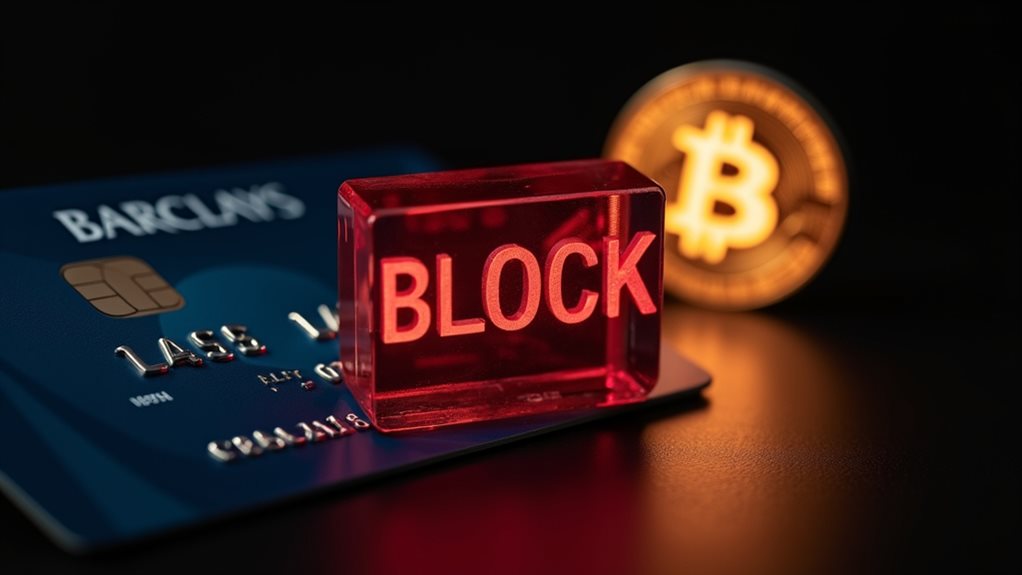Barclays quietly banned crypto purchases with Barclaycards starting June 27, 2025, burying the announcement in their FAQ section rather than making it public. The bank cited volatility risks and customer protection concerns, joining other UK banks like HSBC and Lloyds in restricting retail access. Here’s the kicker: Barclays holds $137 million in Bitcoin ETFs while telling customers crypto is too dangerous. Millions of cardholders now face limited options, though debit purchases remain available. The full story reveals deeper contradictions.

While Barclays quietly updates its website policies, millions of UK customers just lost their ability to buy crypto with credit cards. The bank officially banned all digital asset purchases using Barclaycards starting June 27, 2025. No fanfare. No press release. Just a simple policy change buried in their FAQ section.
The reasoning? Pure risk management wrapped in corporate speak. Barclays claims crypto’s wild price swings could leave customers drowning in unaffordable debt. Fair point, considering Bitcoin can drop 20% on a Tuesday for no apparent reason. They also cite the lack of regulatory protections – if your crypto purchase goes sideways, you can’t exactly call the Financial Ombudsman Service for help. With DeFi platform hacks becoming increasingly common, the bank’s concerns about security risks appear justified.
Here’s where it gets interesting though. While Barclays tells regular customers they can’t buy crypto with credit cards, the bank itself holds roughly $137 million worth of BlackRock’s Bitcoin ETF. Talk about mixed signals. Apparently crypto is too risky for Joe Public but perfectly fine for institutional portfolios. The bank’s position includes 2,473,064 shares of IBIT, which launched in January 2024 and became the largest BTC-based ETF by trading volume.
Crypto too risky for customers but perfect for the bank’s own $137 million Bitcoin ETF holdings.
Barclays isn’t exactly breaking new ground here. HSBC, Lloyds, NatWest, and Santander all have similar restrictions. Lloyds actually pioneered this approach back in 2018, making them the crypto killjoy trendsetter. Chase UK joined the party in 2023. It’s become a proper British banking tradition at this point.
The impact hits different for everyone. Millions of Barclaycard holders lost a convenient way to jump into crypto markets, though debit cards and bank transfers still work. Some customers will likely shop around for crypto-friendly banks. Others might just shrug and move on. The move also pushes users toward third-party payment services and crypto-native exchanges as alternative funding methods.
The Financial Conduct Authority‘s increased scrutiny probably didn’t help Barclays’ decision-making process either. UK regulators have been tightening the screws on crypto-related activities, and banks are responding predictably – by playing it safe and restricting access.









